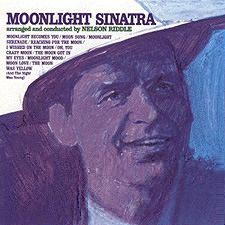Personnel
Tracks 1, 5, 6, 8, 10:
November 30, 1965 (Tuesday) – Hollywood. United Recording "A" (from 8 to 11 P.M.).
Cappy Lewis (tpt); Urbie Green, Tom Shepard, Tommy Pederson (tbn); George Roberts (b-tbn); Vincent DeRosa, Richard Perissi, William Hinshaw (fr-h); Lloyd Hildebrand, Jack Marsh (bsn); Norman Benno, Gene Cipriano (oboe); Willie Schwartz, Ronny Lang (fl); Justin Gordon, Chuck Gentry, Harry Klee (wwd); Gerald Vinci, Alex Beller, Thelma Beach, Marshall Sasson, Nathan Ross, Anatol Kaminsky, Bonnie Douglas, James Getzoff, Jacques Gasselin, Emo Neufeld, Ralph Schaeffer, Victor Amo, Lou Raderman, Paul Shure, David Frisina, Alex Murray, Israel Baker, Victor Bay (vln); Paul Robyn, Alex Neiman, Barbara Simons, Allan Harshman, Stanley Harris, Alvin Dinkin (via); Kurt Reher, Eleanor Slatkin, Edgar Lustgarten, Harold Schneier, Anne Goodman, Nino Rosso (vlc); Kathryn Julye (harp); Bill Miller (p); Vincent Terri, Al Viola (g); Ralph Pena, Eddie Gilbert (b); Irving Cottler (d); Victor Feldman (perc); Nelson Riddle (arr/cond).
Tracks 2, 3, 4, 7, 9:
November 29, 1965 (Monday) – Hollywood.
Tommy Pederson, Urbie Green (tbn); George Roberts (b-tbn); Vincent DeRosa, William Hinshaw, Richard Perissi (fr-h); Ted Nash, Ronny Lang (cit); Jules Jacob (oboe); Lloyd Hildebrand, Jack Marsh (bsn); Willie Schwartz, Gene Cipriano, Chuck Gentry, Harry Klee (sax); Gerald Vinci, Emil Briano, Ambrose Russo, Herman Clebanoff, Tibor Zelig, Thelma Beach, Arnold Belnick, Jerome Reisler, John De Voogdt, Darrel Terwilliger, Marshall Sosson, Victor Amo, Alex Murray, Ralph Schaeffer, William Kurasch, Victor Bay, Alex Beller, Nathan Ross (vln); Paul Robyn, Stanley Harris, Maxine Johnson, Barbara Simons, Joseph Di Fiore, Alvin Dinkin (via); Kurt Reher, Edgar Lustgarten, Eleanor Slatkin, Harold Schneier, Jesse Ehrlich, Nino Rosso (vlc); Kathryn Julye (harp); Bill Miller (p); Al Viola (g); Ralph Pena, Eddie Gilbert (b); Irving Cottler (d); Larry Bunker (perc); Nelson Riddle (arr/cond).
